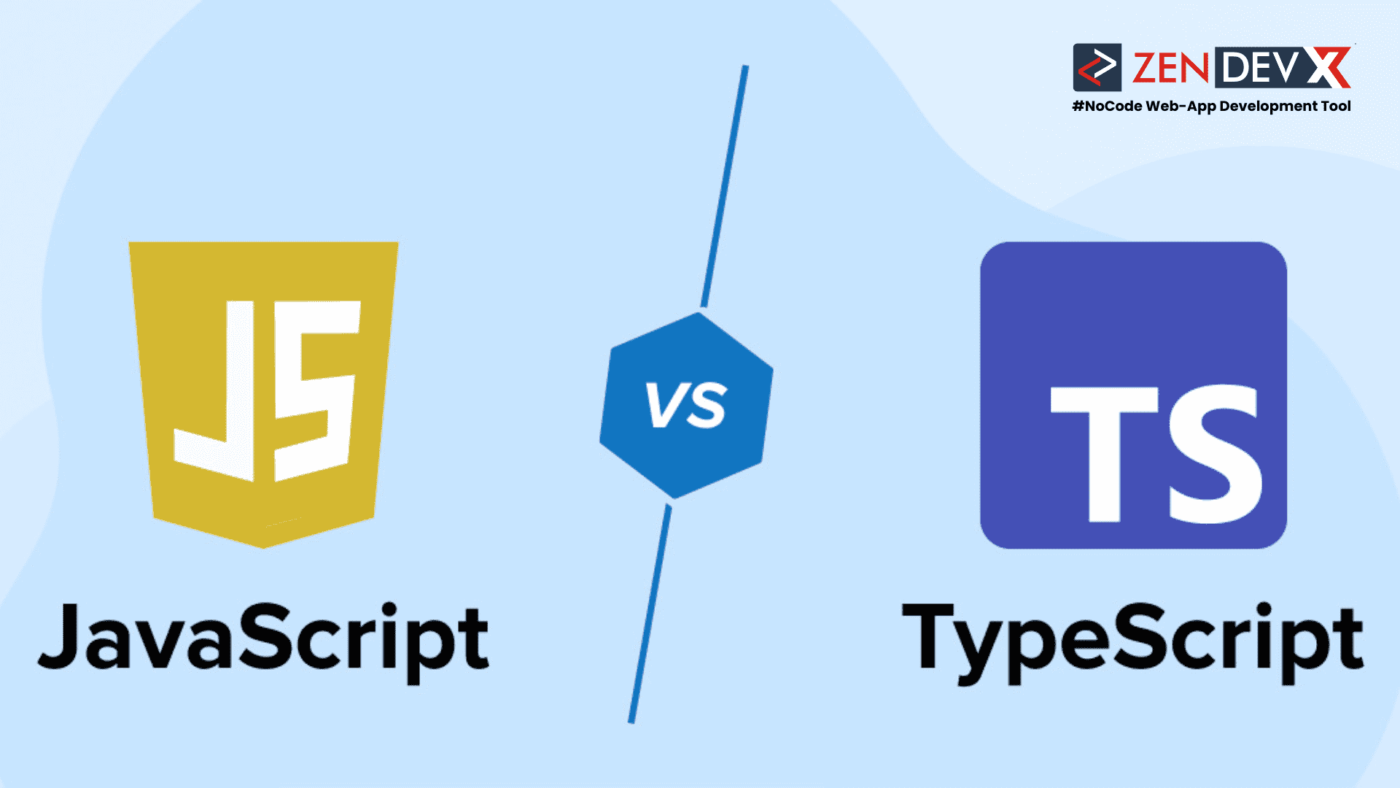JavaScript is the most often used programming language available worldwide, hence it would appear natural for your next project. One could argue that strength in numbers has value. The millions of programmers fluent in JavaScript mean that there are plenty of tools online should you run across problems with JavaScript.
But is the best option usually the most often used one ?
For some projects, Typescript has lately become a viable substitute for JavaScript. Typescript first surfaced in 2012 to address issues arising from JavaScript’s quite complex code design; it has been around for the better half of a decade. Typescript presents a substitute for more sizable, business-level applications, which frequently run against problems with JavaScript.
When it comes to a programming language, there is no one-size-fits solution; much depends on the details of a certain project and the capacity of your development staff. Below is a quick comparison of Typescript against JavaScript together with advantages and disadvantages of both.
What is JavaScript ?
JavaScript is a text-based computer language mostly in charge of making websites interactive and runs on both client and server sides. For instance, Instagram embeds on a Buzzfeed post or the search function on an e-commerce website run on JavaScript.
Whereas Typescript is an object-oriented programming language—which we shall discuss in more detail below—JavaScript is a scripting language. Task execution in run-time settings like software programs, web pages, and occasionally even games is accomplished in scripting languages. These languages are interpreted, not compiled, during runtime and automate jobs typically handled by a human operator.
Often used to create user interfaces, JavaScript is regarded as a client-side scripting language—that is, it is run off the user’s browser and seen by visitors.
Benefits and Drawbacks of JavaScript
JavaScript is still rather popular as was already noted. This means, should you ever need to troubleshoot problems, there is plenty of community support available for free. Finding programmers competent in JavaScript will not be difficult if you are assembling a development team.
JavaScript enables event-driven as well as functional programming as a high-level, multi-paradigm language. The Typescript against JavaScript argument frequently revolves around static vs dynamic type. JavaScript’s dynamic type allows a variable to be altered every time it is used, thereby saving a lot of time since it results in a smaller volume code. Furthermore, dynamic typing is felt by some developers as additional freedom throughout the development process.
Dynamic typing is infamous for run-time mistakes, hence this is kind of a two-edged blade. Typescript lets you choose between dynamic and static typing depending on which is optimal for a given project.
With enterprise-level development, JavaScript’s sometimes intricate code structure is challenging to manage; in fact, Typescript originated from this difficulty. Designed as a code closely associated with JavaScript but more appropriate for backend coding, Microsoft developed Typescript.
What is TypeScript ?
Typescript is most simply a more general form of JavaScript. Though the reverse is not always true, everything valid in JavaScript will be valid in Typescript. Typescript’s validity might or might not apply in JavaScript.
Typescript is best understood if one is familiar with JavaScript since their basic components are alike. Working across many browsers, devices, and operating systems, Typescript is a portable language. Typescript may run seamlessly without a specialized VM or runtime environment, unlike JavaScript.
Whereas a scripting language is object-oriented, TypeScript is a programming language. This implies that instead of logic and functions, it arranges programs around data—or objects. Typescript, then, emphasizes the objects developers are changing above the reasoning needed to enable these changes.
Advantages and Drawbacks of TypeScript
The largest benefit of Typescript is something we already covered. Typescript is usually the better choice for development at an enterprise level. It combines several tools that ease development while nevertheless having all the advantages of JavaScript.
Optional static typing can provide your code greater structure, speed up bug repairs, and enable code self-documenting and simplicity of reading. Typescript also offers significant benefits in terms of cross-platform and cross-browser interoperability as we just discussed.
Cons: Typescript is still significantly less popular than JavaScript, hence online assistance is limited and your pool of possible developers is reduced. But Typescript is like JavaScript, hence the learning curve is not too severe.
Like JavaScript’s dynamic type features, Typescript is meant to be easier to read, although this is a two-edged blade. Typescript code can get bloated from the extra syntax and annotations, which would produce bigger files you must transpile to run on a browser. Although this does not provide much more time, depending on the scope of your project and your schedule the extra processes could not be worth it.
Which between Typescript and JavaScript should I use ?
Typescript is often a very broad rule of thumb; whereas JavaScript is more appropriate for smaller applications. Typescript, being an object-oriented language, produces perfect for enterprise level development clean, reusable code.
Still, any given endeavor involves clearly more elements at work. If your present tools, budget, and schedule do not fit learning Typescript (or finding developers who do), JavaScript may be the superior option even if building a sizable JavaScript project is absolutely viable.
Although Typescript and JavaScript differ greatly, their commonalities usually mean the decision between the two is rather arbitrary. Before choosing a programming language, always consider your particular requirements as well as those of a project.


